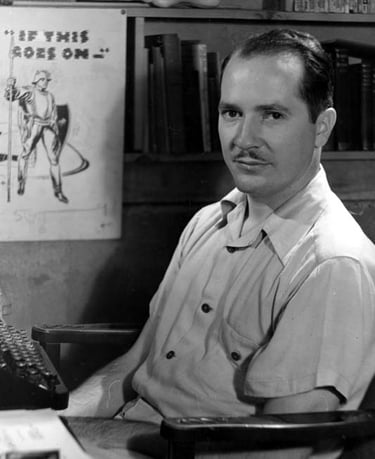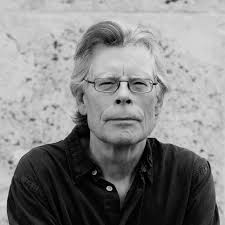Things Somebody Said About Life (and Writing)
Heinlein’s Rules of Writing: Principles for Success:
You must write.
You must finish what you start.
You must refrain from rewriting (except to editorial demand).
You must put it on the market.
You must keep it on the market until sold.


Norman Mailer on Writing:
"Writing for a living is the most rewarding and the most imporverishing things anyone can do. It's rewarding in that one doesn't have to contend with anateur standing; you can take two, three, four hours to get ready and the pay and the hours are good. It's impoverishing in that it's so spiritless, so humorless. Your worst writing takes place when you are in a good mood. t's a passionate night and you turn to your wife and say 'I love you', and it's earth-shattering - those three words on a page are nothing. Writers have to live in the middle level where nothing is felt.
There is no justification for being a writer. You have to give yourself a reason to write every day. You have to say to yourself, 'No matter what, I deserve to write for one more day'."
For more from Mailer on writing in his radio interview with Suds Terkel click here.
"Insanity is a relative term. Behavior that might be acceptable in a rock band might get you committed if your work in a bank."
Lindsay Buckingham


Elmore Leonard: 10 Rules for Good Writing (in his own words):
Never open a book with weather.
Avoid prologues.
Never use a verb other than "said" to carry dialogue.
Never use an adverb to modify the verb "said"…he admonished gravely.
Keep your exclamation points under control. You are allowed no more than two or three per 100,000 words of prose.
Never use the words "suddenly" or "all hell broke loose."
Use regional dialect, patois, sparingly.
Avoid detailed descriptions of characters.
Don't go into great detail describing places and things.
Try to leave out the part that readers tend to skip.
My most important rule is one that sums up the 10.
If it sounds like writing, I rewrite it.


"The reason 99% of all stories written are not bought by editors is very simple: editors never buy manuscripts that are left on the closet shelf at home"
John W. Campbell
Henry Miller: 10 Writing Tips:
Work on one thing at a time until finished.
Start no more new books, add no more new material to Black Spring. (Apparently he's giving himself this advice.)
Dont be nervous. Work calmly, joyously, recklessly on whatever is in hand.
Work according to the program and not according to mood. Stop at the appointed time!
When you cant create you can work.
Cement a little every day, rather than add new fertilizers.
Keep human! See people, go places, drink if you feel like it.
Dont be a draught-horse! Work with pleasure only.
Discard the Program when you feel like itbut go back to it the next day. Concentrate. Narrow down. Exclude.
Forget the books you want to write. Think only of the book you are writing.
Write first and always. Painting, music, friends, cinema, all these come afterwards.
From Henry Miller's book Henry Miller on Writing.
"Life is not a popularity contest. You make a few good friends, you burn a trail across the world leaving a permanent shadow of groupies and rubble, and one day, it's Miller time!
David Lee Roth
First write for yourself, and then worry about the audience. “When you write a story, you’re telling yourself the story. When you rewrite, your main job is taking out all the things that are not the story."
Don’t use passive voice. “Timid writers like passive verbs for the same reason that timid lovers like passive partners. The passive voice is safe.”
Avoid adverbs. “The adverb is not your friend.”
Avoid adverbs, especially after “he said” and “she said.”
But don’t obsess over perfect grammar. “The object of fiction isn’t grammatical correctness but to make the reader welcome and then tell a story.”
The magic is in you. “I’m convinced that fear is at the root of most bad writing.”
Read, read, read. ”If you don’t have time to read, you don’t have the time (or the tools) to write.”
Don’t worry about making other people happy. “If you intend to write as truthfully as you can, your days as a member of polite society are numbered, anyway."
Turn off the TV. “TV---while working out or anywhere else---really is about the last thing an aspiring writer needs.”
You have three months. “The first draft of a book---even a long one---should take no more than three months, the length of a season.”
There are two secrets to success. “I stayed physical healthy, and I stayed married.”
Write one word at a time. “Whether it’s a vignette of a single page or an epic trilogy like ‘The Lord of the Rings,’ the work is always accomplished one word at a time.”
Eliminate distraction. “There’s should be no telephone in your writing room, certainly no TV or videogames for you to fool around with.”
Stick to your own style. “One cannot imitate a writer’s approach to a particular genre, no matter how simple what that writer is doing may seem.”
Dig. “Stories are relics, part of an undiscovered pre-existing world. The writer’s job is to use the tools in his or her toolbox to get as much of each one out of the ground intact as possible.”
Take a break. “You’ll find reading your book over after a six-week layoff to be a strange, often exhilarating experience.”
Leave out the boring parts and kill your darlings. “(kill your darlings, kill your darlings, even when it breaks your egocentric little scribbler’s heart, kill your darlings.)”
The research shouldn’t overshadow the story. “Remember that word back. That’s where the research belongs: as far in the background and the back story as you can get it.”
You become a writer simply by reading and writing. “You learn best by reading a lot and writing a lot, and the most valuable lessons of all are the ones you teach yourself.”
Writing is about getting happy. “Writing isn’t about making money, getting famous, getting dates, getting laid or making friends. Writing is magic, as much as the water of life as any other creative art. The water is free. So drink.”


Stephen King's Rules For Writing
"Literature is an occupation in which you have to keep proving your talent to people who have none."
Jules Renard


